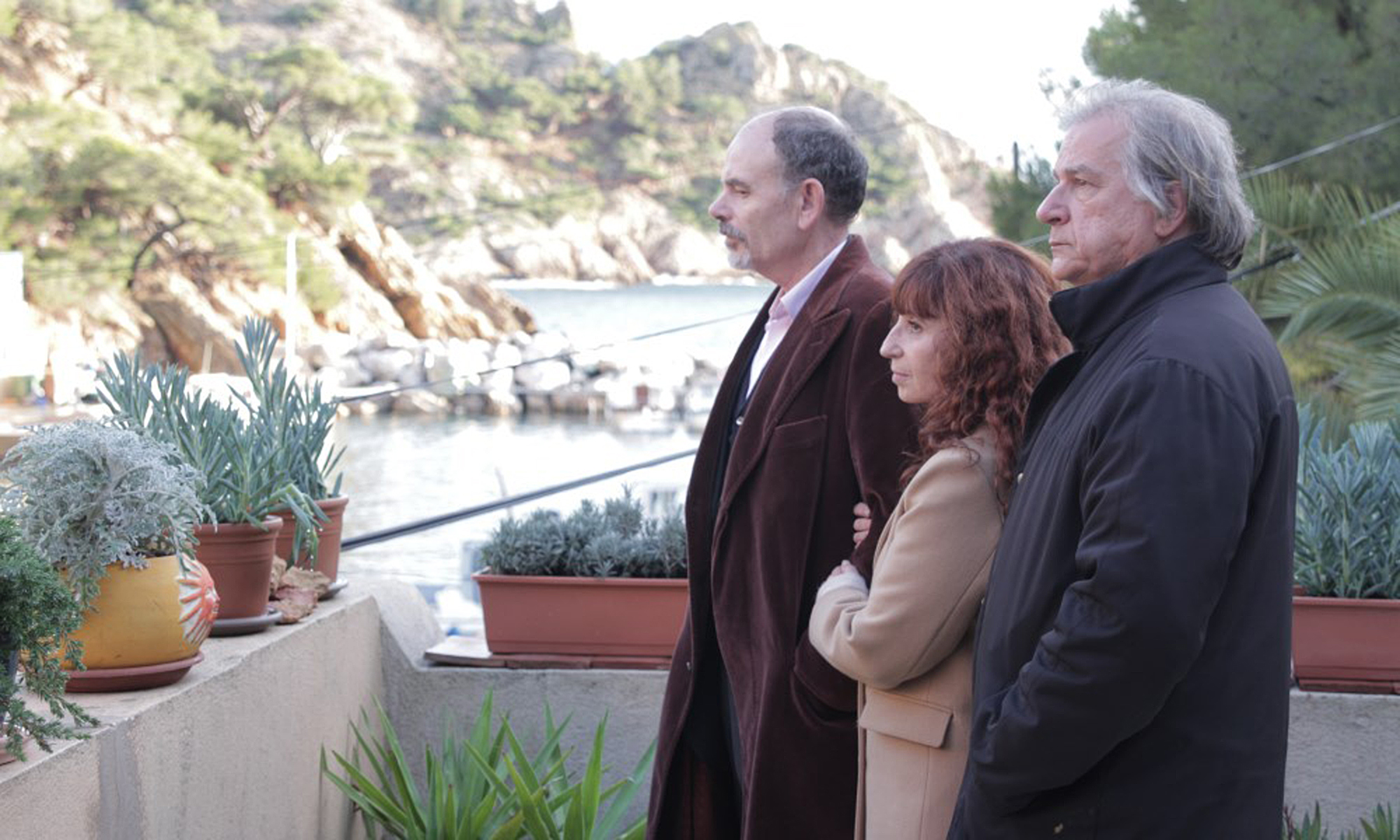
- Festivals
La Villa (The House by the Sea): Guédiguian’s Ordinary People
What begins as an old-fashioned family melodrama turns into a more complex existential meditation on the way we live now in Robert Guédiguian’s La Villa (The House by the Sea).
Unlike most Hollywood family sagas, the story doesn’t center on the inevitable conflicts between parents and children – the classic generation rift – but on three late middle-aged siblings, when they reunite at the place where they grew up.
A regional French director, Guédiguian has put Marseille, its residents, and its unique landscape on the international film map (his films are also regularly shown at the Cannes Film Festival). And as usual, he likes to work with the same actors, who form a repertory company, an idea reinforced here by the fact that the protagonist is an aging actress, played by Ariane Ascaride, collaborating in this picture with her husband for the 19th time.
Ascaride plays Angèle, a successful stage and screen actress, who reluctantly returns to her childhood home in a small and provincial fishing village, when her aged father Maurice (Fred Ulysse) suffers a severe stroke that turns him into an unresponsive presence. The walls are filled with paintings and photos of her performances.
Her two brothers are the dutiful and good son Armand (Gérard Meylan), who stayed in the village to keep their father’s struggling restaurant; he refuses to change the menu or raise the food prices. The other son is the more sophisticated Joseph (Jean-Pierre Darroussin), an early retiree who arrives with his much younger girlfriend, Bérangère (Anaïs Demoustier), who is age-wise and could be his daughter.
The dialogue and interactions are smooth and effortless, and here and there the director injects a lively memory scene, such as the one in which the three young siblings take a day trip to the coast, and throw each other into the water. Accompanied by Bob Dylan’s popular hit, “I Want You,” the scene is more than welcome, suggesting a once-upon-a-time more joyful facet of the trio’s lives.
It doesn’t take long for new couples to be formed, or to break up. A young fisherman, Benjamin (Robinson Stévenin), stubbornly courts the older Angèle with poetry and quotes from Shakespeare, and a bouquet of red roses, until she finally succumbs to his charms and goes to bed with him.
Yvan (Yann Trégouët), the doctor son of Martin and Suzanne, the aged couple who are Maurice’s only neighbors and friends, expectedly falls for the beautiful Bérangère. Clearly, this couple does not belong in the village and they plan to leave. This is a French film, and so Joseph observes their romantic outings on his motorbike with no resentment or even slight arguments.
(Spoiler alert: the tragic fate of the noble couple, who refuse to be economically dependent on their loyal son, is the film’s most shocking and touching scene, because it is both unexpected and presented in a subtle, non-melodramatic way.)
The siblings are forced out of their complacency, misery, and self-absorption, when they discover three migrant children, two boys and a girl – an obvious parallel to the older siblings themselves – hiding out in the woods. The authorities are looking for the refugees, but the siblings decide to take a risk (the first in a long time) and offer shelter, food, and protection.
The three kids are obviously afraid and suspicious – they have seen too much tragedy for their very young lives. But gradually they warm up and begin to trust their hosts. Taking care of the girl finally provides an avenue of healing and catharsis for Angèle, when she offers the girl the clothes of her own daughter Blanche, kept in a closed room and cabinet for months.
The encounter with the poor and starving children serves as dramatic impetus, sort of a renewal and the beginning of a new chapter for all concerned. It’s in this last reel that the film grounds itself in the sad contemporary reality of the rampant refugee crisis.
The film ends on a graceful, optimistic note, when the two sets of siblings, now representing a new extended surrogate family, replay a favorite childhood game, calling each other’s names up into the arches of a viaduct with strong reverberating echoes, like a roundelay. It’s perhaps a too hopeful and lyrical metaphor for the film’s otherwise predominant realistic and matter-of-fact nature.
La Villa gives the impression of a personal, self-reflexive film, in which the vet filmmaker looks back at his own life – and own movies. In today’s film market, only a mature and confident director could build a drama, in which all the characters are of a certain age (some really old and dying).
La Villa world premiered in competition at the 2017 Venice Film Fest and is playing next week at the Toronto Film Fest.